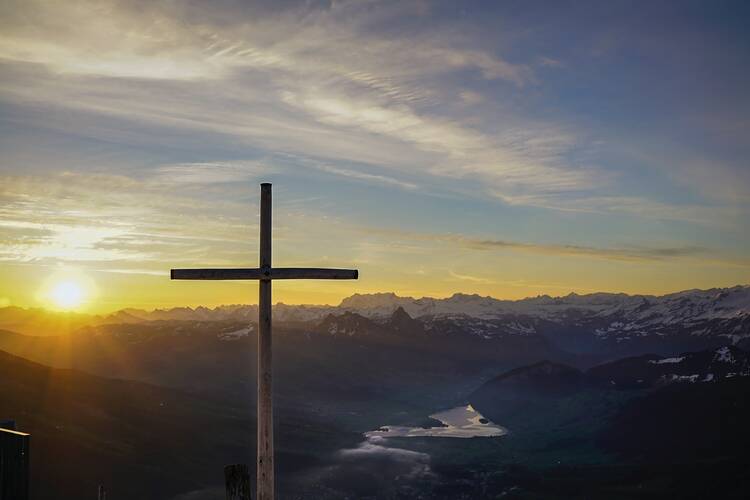A Reflection for Wednesday of the Fifth Week of Lent
Find today’s readings here.
Even scholars who have made a lifelong study of John’s Gospel find today’s passage unusually subtle in its theology and argumentation. Jesus is making distinctions among different levels of freedom, but his audience does not understand him. In fact, the offense that they take symbolizes the growing hostility to Jesus that will result in his crucifixion.
Today’s first reading establishes one level of this distinction. Three young men, officials in the Babylonian court from among the Jewish exiles captured by King Nebuchadnezzar II (605-562 B.C.E.), refuse to participate in the king’s idolatrous rites. The king has them arrested and gives them a choice: obey and go free or resist and be burnt alive. With an arrogance breathtaking even by biblical standards, he demands to know, “Who is the God who can deliver you out of my hands?” The young men know such a God, and choose the fire. Their devotion wins them deliverance. Nebuchandezzar offered them a freedom based on fear, but they recognized the illusory nature of such a gift. The young men found freedom instead in the integrity of their loyalty to God.
If there is a challenge in today’s readings it is to look beyond the illusion of freedom that the world can create and instead seek out and trust in that same love that Jesus knew.
Jesus draws a similar distinction in today’s Gospel reading. His listeners are baffled at his offer of freedom. "We are descendants of Abraham,” they claim, “and have never been enslaved to anyone.” What Jesus recognizes, however (and what John’s Gospel especially makes clear), is how far many of Abraham’s offspring had drifted from their ancestor’s devotion. Scripture calls Abraham a friend of God (Is 41:8), but in this passage from John’s Gospel, a group of Abraham’s descendants threaten to kill God’s son. Their murderous intent reveals just how deeply mechanisms of human power—especially faith in the power of violence and the freedom that comes from fear—held them in thrall.
By contrast, Jesus offers a freedom based on love. His disciples are free because they know the Father’s love just as Jesus knows it. This love is the mysterious power that gave the three young men in Babylon their courage and ultimately affected their deliverance. This is the love in which Jesus trusted during his own passion and death, and which delivered him in the resurrection. This is the love that is still available today, even as structures of human power continue to churn out fear and violence. If there is a challenge in today’s readings it is to look beyond the illusion of freedom that the world can create and instead seek out and trust in that same love that Jesus knew. Then we too will know a freedom that can face any challenge.








